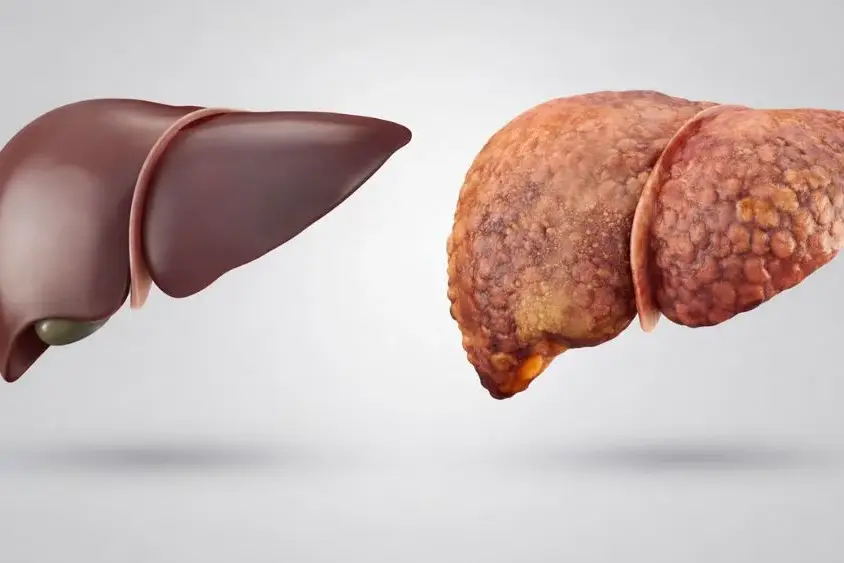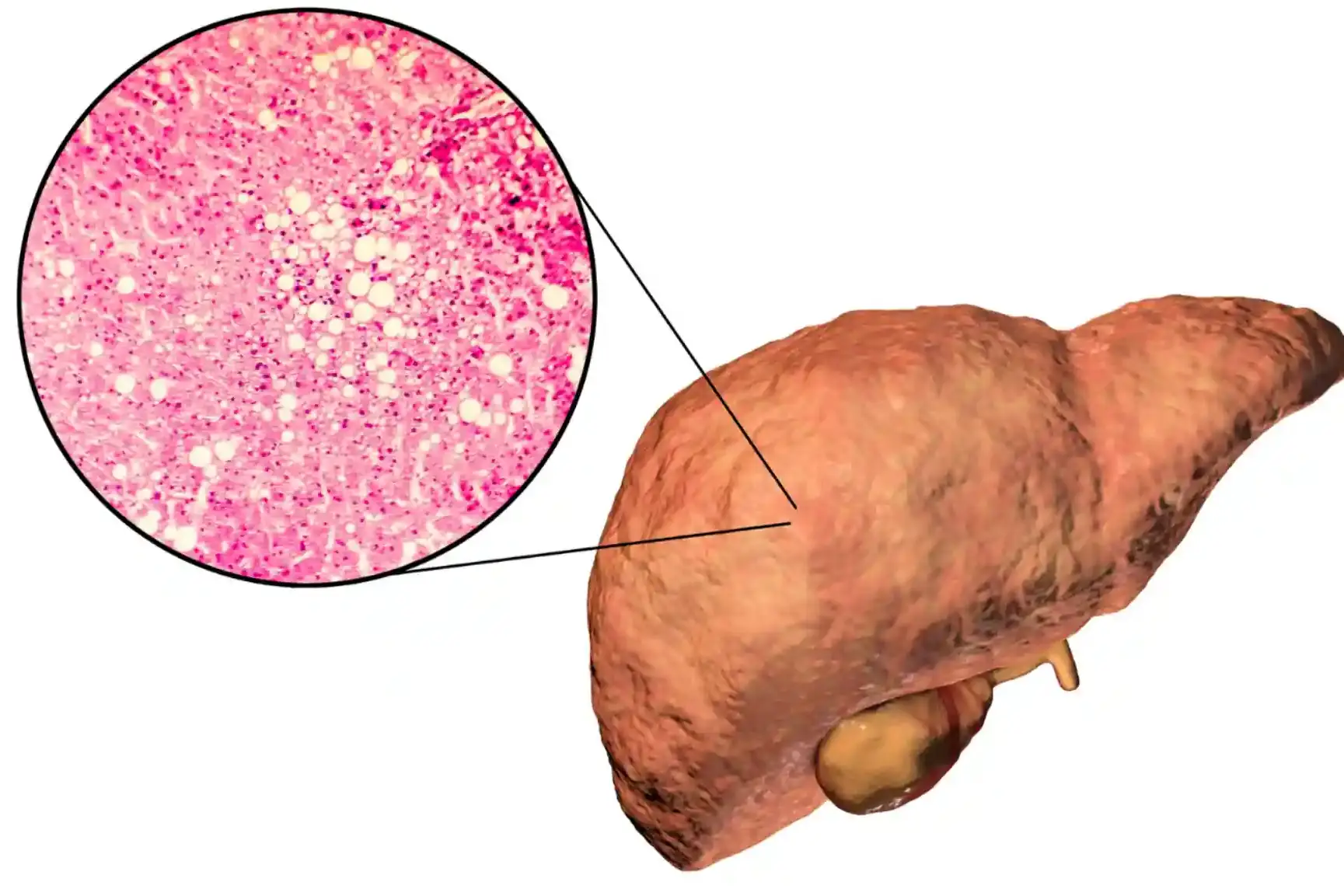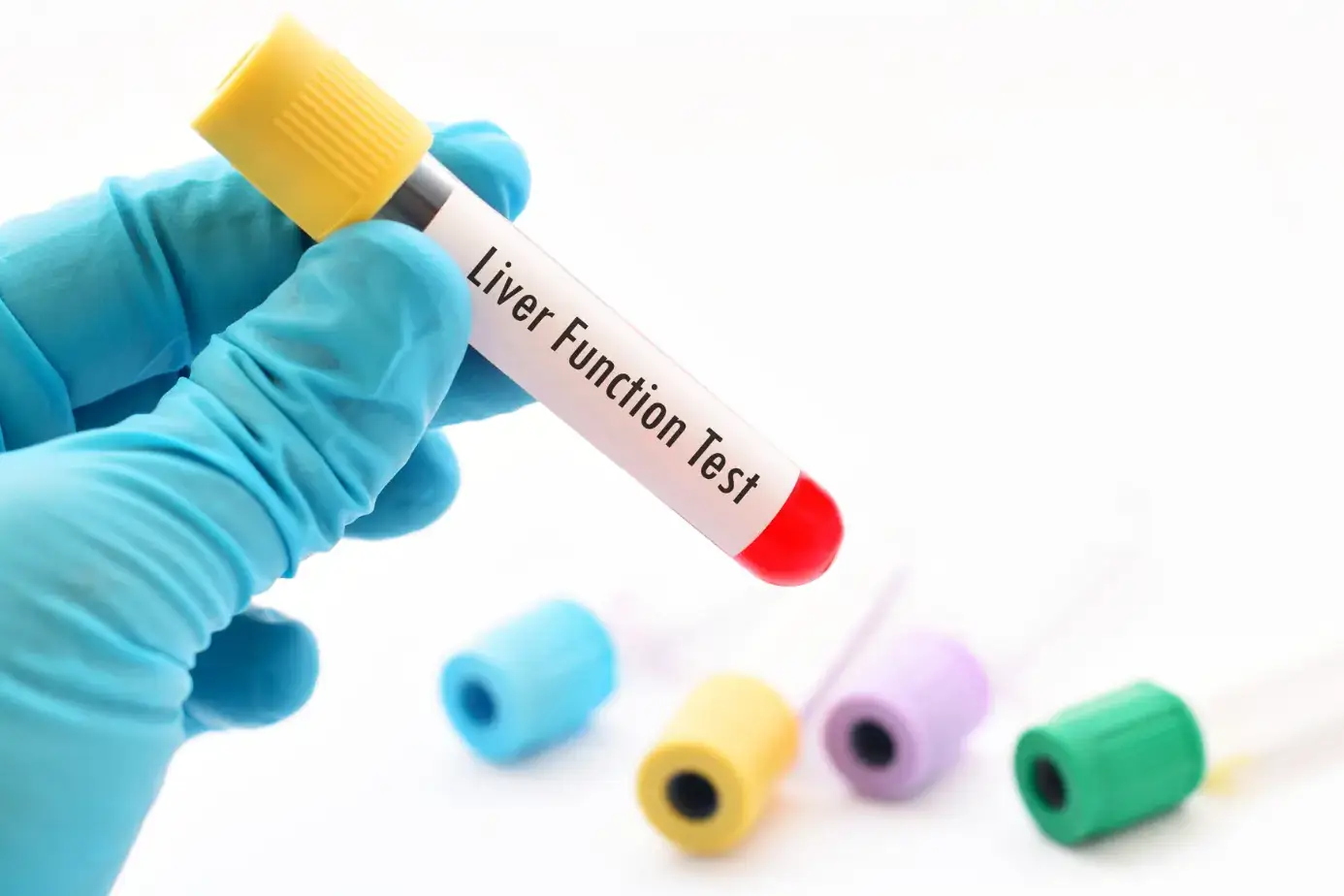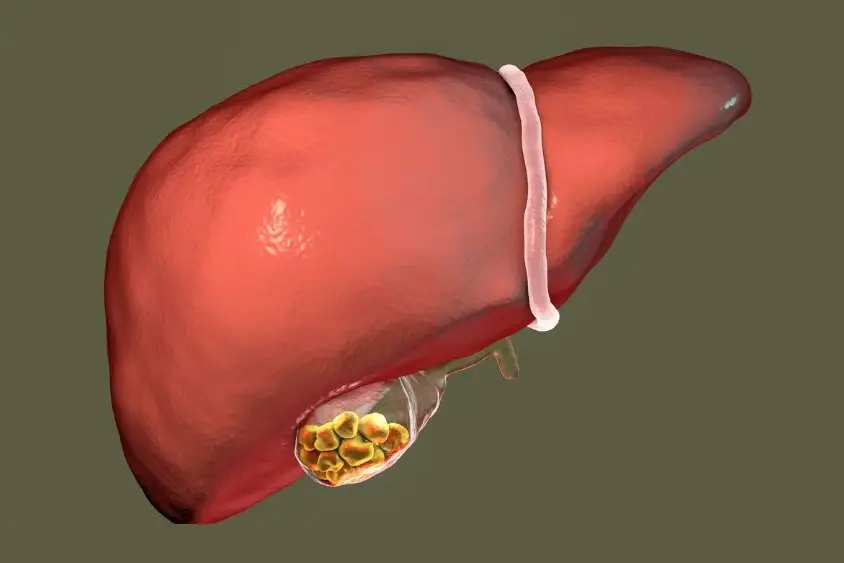Your liver is a key organ, weighing up to 4 pounds. It helps with digestion, removes waste, and aids blood clotting. If it doesn’t work right, you might face serious problems. We’ll look at liver signs, its important roles, and when to see a doctor.
Table of Contents
ToggleLiver diseases come from many sources, like viruses, autoimmune issues, and too much alcohol. Some start with small symptoms but can get worse fast. Knowing the signs and taking care of your liver is very important.
Understanding the Mighty Liver
The liver is a vital organ that keeps you healthy. It sits in the upper right part of your belly, below your ribs. This amazing organ can weigh up to 4 pounds.
Its main job is to clean your blood. It removes harmful toxins and substances.
The Liver’s Vital Functions
The liver does more than just detoxify. It helps digest food and makes clotting factors to stop bleeding. It also breaks down hormones and stores vitamins and minerals.
This helps keep your metabolism working well.
Liver Anatomy and Location
The liver is in the upper right part of your belly. Its location helps it do its job well. Knowing about the liver’s anatomy and location helps us understand its importance.
Common Symptoms of Liver Pain
It’s important to know the signs of liver disease to get help fast. Some liver problems don’t have clear signs. But, there are warning signs to look out for.
Jaundice is a big sign. It makes the skin and the whites of the eyes turn yellow.
Jaundice: A Telltale Sign
Jaundice means the liver can’t break down bilirubin right. This is a waste product from breaking down red blood cells. When there’s too much bilirubin, the skin and eyes turn yellow.
Abdominal Pain and Swelling
Liver disease can cause pain and swelling in the belly. When the liver gets big or damaged, it can hurt nearby organs. This leads to discomfort.
Other symptoms include feeling very tired, nausea, vomiting, itchy skin, dark urine, and easy bruising or bleeding.
Watching for these signs and getting medical help quickly is key. If you notice any of these symptoms, see your doctor right away.

Causes of Liver Disease
Liver disease comes from many sources, like viral hepatitis and autoimmune liver diseases. Knowing these causes helps prevent and manage them better.
Viral Hepatitis: A Major Culprit
Viral hepatitis is a big reason for liver disease. It’s caused by viruses A, B, and C. These viruses can spread through blood, food, water, or close contact with someone sick.
Symptoms can be mild or severe. If not treated, they can cause serious damage. This includes cirrhosis and liver cancer.
- Hepatitis A spreads through contaminated food or water, causing liver inflammation.
- Hepatitis B is spread through infected blood, semen, or fluids, leading to chronic disease if not managed.
- Hepatitis C spreads through infected blood, often through needles or drug paraphernalia, causing chronic disease.
Autoimmune Liver Diseases
Autoimmune liver diseases happen when the body attacks the liver by mistake. This leads to inflammation and scarring. Conditions include autoimmune hepatitis, primary biliary cholangitis, and primary sclerosing cholangitis.
Symptoms can be different, but often include fatigue, pain, and jaundice.
Understanding liver disease causes is key to prevention and treatment. Recognizing viral hepatitis and autoimmune liver diseases helps protect liver health.
Genetic Liver Disorders
Lifestyle choices and viral infections can harm your liver. But, some genetic disorders can cause big problems too. These disorders make your liver store too much iron, copper, or proteins. This can damage your liver and lead to serious issues.
Hemochromatosis is a common inherited disease in the U.S. It makes your body store too much iron. This can harm your liver, heart, and other organs. Symptoms include joint pain, fatigue, and weight loss.
Wilson’s disease stops your body from getting rid of extra copper. This can damage your liver and cause neurological problems. Alpha-1 antitrypsin deficiency lowers a key liver enzyme. It can lead to lung and liver disease.

Managing these disorders often means making lifestyle changes. You might need medication or even a liver transplant. Eating well, avoiding alcohol, and regular check-ups can help.
It’s important to stay informed and work with your doctor. This way, you can manage your genetic liver disease. And you can avoid serious complications.
Liver Problems Linked to Lifestyle
Your liver’s health is tied to your lifestyle. Two big factors are alcohol abuse and obesity.
Alcohol Abuse and Liver Damage
Too much alcohol harms your liver. Drinking too much can cause fatty liver disease. This is when fat builds up in the liver.
If not stopped, it can turn into hepatitis and cirrhosis. These are serious problems. The only cure is to stop drinking.
Obesity and Nonalcoholic Fatty Liver Disease
Being overweight or obese also harms your liver. It can lead to nonalcoholic fatty liver disease (NAFLD). This is when fat builds up in the liver, even if you don’t drink a lot.
This fat buildup can cause inflammation and scarring. This is called nonalcoholic steatohepatitis (NASH). It can turn into cirrhosis if not treated.
Keeping a healthy lifestyle and liver health is key. Good habits include:
- Limiting or avoiding alcohol
- Keeping a healthy weight through diet and exercise
- Managing diabetes and high cholesterol to prevent liver problems
By choosing wisely, you can protect your liver. This avoids the dangers of alcohol abuse and obesity-related liver damage.
Pain in the liver
The liver is a key organ in our body. It does many important jobs. But, pain in the liver can happen due to different reasons. It’s important to know the signs and symptoms to stay healthy.
Jaundice is a sign of liver trouble. It makes your skin and eyes look yellow. You might also feel pain or swelling in your belly, feel sick, or lose your appetite. These could mean you have a liver problem like hepatitis or cirrhosis.
If you feel pain or notice changes in your body, see a doctor. Early treatment can stop problems from getting worse. Always talk to a healthcare provider if you worry about your liver.
Liver pain can come from many things. This includes viruses, autoimmune diseases, genetic issues, and lifestyle choices. Some common causes are:
- Viral hepatitis (hepatitis A, B, and C)
- Alcoholic hepatitis and cirrhosis
- Nonalcoholic fatty liver disease
- Liver abscesses or cysts
- Liver cancer
- Budd-Chiari syndrome
Knowing the signs of liver pain and getting help fast is crucial. Don’t wait to talk to your doctor if you’re worried about your liver.
Risk Factors for Liver Disease
Keeping your liver healthy is very important. Some things can make you more likely to get liver problems. Your genes can play a big role, especially if you have inherited conditions like hemochromatosis or Wilson’s disease.
If liver disease runs in your family, you should see your doctor often. This is to check on your liver health.
Family History and Genetics
Your family history and genetics can greatly affect your liver health. Conditions like hemochromatosis and Wilson’s disease can increase your risk. If liver disease is common in your family, talk to your doctor about it.
Also, get regular check-ups to watch your liver function. This is very important.
Risky Behaviors and Exposures
Other things can also harm your liver. Drinking too much alcohol, using drugs, not using protection during sex, and being exposed to harmful chemicals can all hurt your liver. These actions can lead to serious problems like viral hepatitis and cirrhosis.
Being careful about these behaviors can help protect your liver. This is key to keeping your health good.
By knowing your risk factors and taking steps to protect your liver, you can prevent and manage liver disease. If you’re worried about your liver health, talk to a liver specialist. They can give you advice and care that’s right for you.
Stages of Chronic Liver Disease
Liver disease is a big problem in the US and is getting worse. It’s important to know the stages of chronic liver disease. This helps you get medical help early and keep your liver healthy.
Hepatitis: The Initial Stage
Hepatitis starts the journey. It’s when the liver gets inflamed. This can happen from viruses, autoimmune issues, or other reasons. If not treated, the liver may start to scar.
Fibrosis and Cirrhosis
Scar tissue can grow and turn into cirrhosis. This is a serious scarring of the liver. As the liver scars more, it can’t work right. This leads to liver failure. Cirrhosis is a critical stage that needs quick medical help.
Knowing the stages of liver disease helps you get treatment early. It also helps you prevent more damage. Regular health checks and liver monitoring are key to catching problems early.
Understanding liver disease helps you work with your doctor. You can make a treatment plan and lifestyle changes for your liver. With the right care and changes, many liver diseases can be treated or even reversed.
Preventing Liver Damage
Keeping your liver healthy is key to feeling good. You can take steps to stop or slow liver disease. Getting vaccinated against hepatitis A and B is important. These viruses can really hurt your liver.
Also, using protection during sex and not sharing needles helps a lot. These actions can greatly reduce liver damage risk.
Vaccines and Safe Habits
Hepatitis A and B vaccines are vital for your liver. These viruses can lead to serious liver problems. So, getting vaccinated is a smart move to protect your liver.
Safe behaviors like safe sex and not sharing needles also help. These actions are crucial in preventing liver disease.
Healthy Lifestyle Choices
Living a healthy lifestyle is also key to preventing liver disease. Staying at a healthy weight, exercising, and drinking plenty of water are good. Avoiding unnecessary meds is also important.
Drinking too much alcohol is bad for your liver. It can lead to serious problems like alcoholic liver disease and cirrhosis.
By getting vaccinated, practicing safe habits, and living healthy, you can protect your liver. Remember, your liver is essential for your health. So, take good care of it.
Conclusion
Your liver is amazing and very important for your health. It’s key to take good care of it. Knowing the signs of liver disease and how to prevent damage helps keep it healthy.
If you notice signs like jaundice, abdominal pain, or swelling, get help fast. The right care and lifestyle changes can protect your liver and make you feel better.
Your liver does many important jobs, like turning food into energy and cleaning your blood. By living healthy and caring for your liver, it will keep working well for you for a long time.
FAQ
What are the main functions of the liver?
What are the common symptoms of liver disease?
What are the main causes of liver disease?
How can I prevent liver disease?
What are the stages of chronic liver disease?
Chronic liver disease starts with inflammation, then scarring, and can lead to severe scarring. If not treated, it can cause liver failure, which might need a transplant.
Source Links
About The Author

Medically reviewed by Dr. Nivedita Pandey, MD, DM (Gastroenterology)
Dr. Nivedita Pandey is a U.S.-trained gastroenterologist and hepatologist with extensive experience in diagnosing and treating liver diseases and gastrointestinal disorders. She specializes in liver enzyme abnormalities, fatty liver disease, hepatitis, cirrhosis, and digestive health.
All content is reviewed for medical accuracy and aligned with current clinical guidelines.





